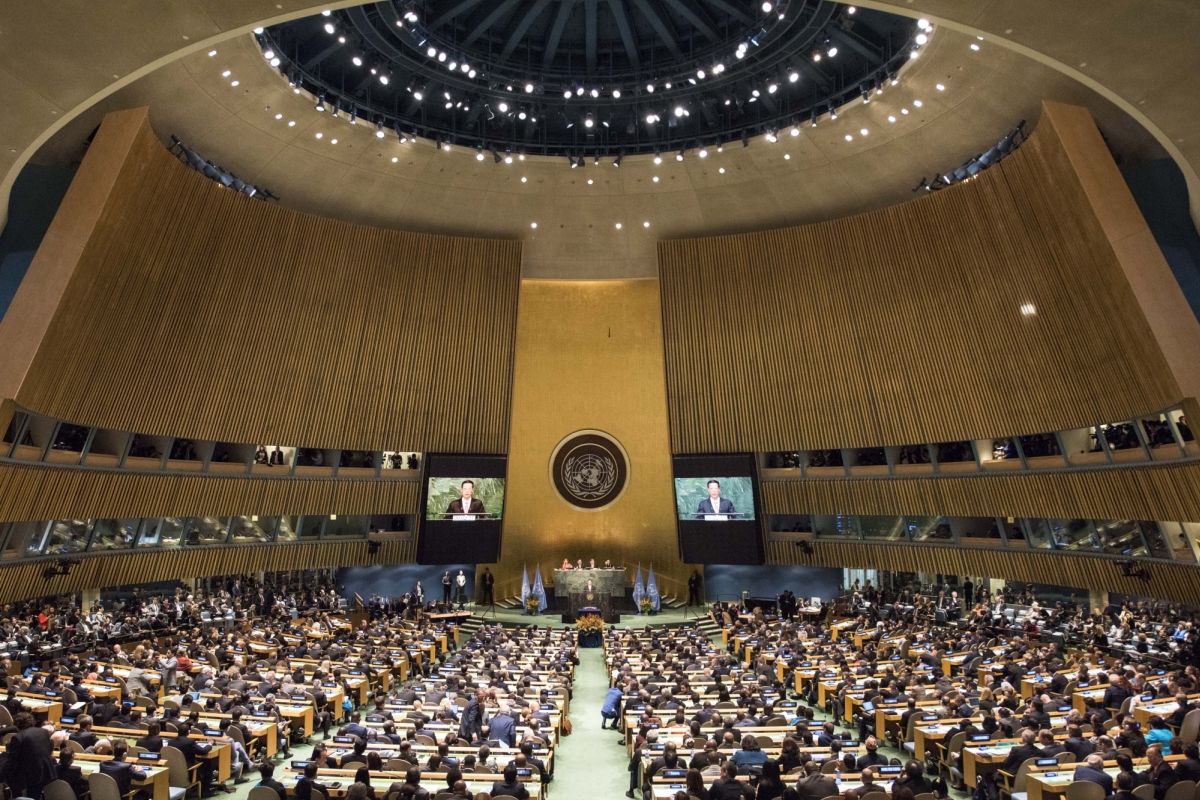Measured Distance
External Affairs Minister S. Jaishankar’s recent remarks on China underline a calculated shift in India’s foreign policy ~ firm but not confrontational, pragmatic yet not submissive.
As the world’s largest renewable energy producer and consumer, China vigorously promotes energy transition. In 2018, clean energy accounted for 22.1 per cent in the total energy consumption mix, 7.6 percentage points higher than that of 2012.
IANS | Beijing | September 26, 2019 1:28 pm

Zhang Gaoli, Chinese vice premier and special envoy of President Xi Jinping (File Photo: IANS)
China will continue, as always, to firmly implement the Paris Agreement, fully honour its commitments and promote the establishment of an equitable, rational and win-win global climate governance mechanism, according to the Ministry of Foreign Affairs.
China has always attached great importance to addressing climate change and upholds a national strategy of attaching equal importance to mitigation and adaptation, the Ministry said in a statement on Thursday titled the UN Climate Action Summit: China’s Position and Action.
Advertisement
As a co-lead of the Nature-Based Solution, China is ready to work with all parties to inject robust political impetus into international cooperation on addressing climate change and the implementation of the Paris Agreement, Xinhua news agency reported.
Advertisement
China has actively promoted efforts to address climate change in the areas of biodiversity, forestry and grassland, agriculture, oceans and water resources, including identifying ecological red lines, increasing forest, grassland and wetland resources, development of biomass energy and improving the flood control, drought relief and disaster mitigation system.
China values, encourages and supports the important role of young people in ecological protection and climate action, actively raising their awareness of ecological civilization and advocating a frugal, moderate, green and low-carbon lifestyle, according to the document.
From 1999 to the end of 2018, by carrying out Mother River Protection Operation, China has raised 600 million yuan ($84 million) to build over 5,700 green projects, covering more than 3,467 square km and attracting over 600 million young people.
Through international cooperation, over 98.32 million trees were planted across China and around 20,000 youngsters overseas participated in the various events.
As the world’s largest renewable energy producer and consumer, China vigorously promotes energy transition. In 2018, clean energy accounted for 22.1 per cent in the total energy consumption mix, 7.6 percentage points higher than that of 2012.
Meanwhile, energy consumption per unit of the GDP was cumulatively 23 per cent lower than that of 2012.
China had phased out more than 800 million tonnes of coal production capacity by 2018 and has closed down over 110 GW of small coal-fired power units with high pollution and low efficiency in recent years, said the document.
Advertisement
External Affairs Minister S. Jaishankar’s recent remarks on China underline a calculated shift in India’s foreign policy ~ firm but not confrontational, pragmatic yet not submissive.
Bangladesh leader Muhammad Yunus’ visit to China this week marks a critical moment in South Asian geopolitics.
The crash of Sri Lankan Air Force's China-made K-8 trainer jet in the Wariyapola area on Friday has raised serious concerns about the safety and operational readiness of the remaining aircraft in service.
Advertisement
